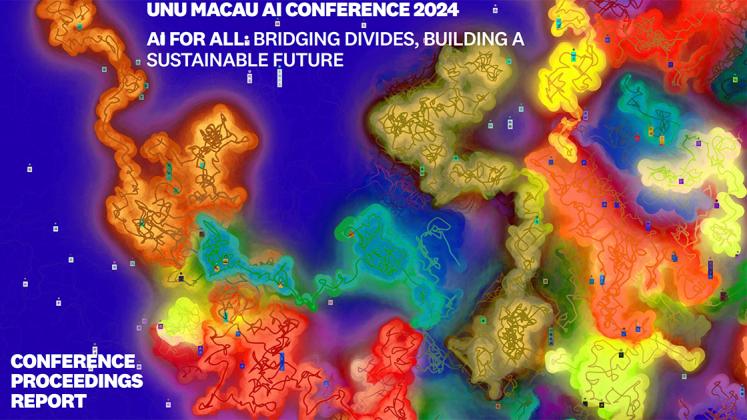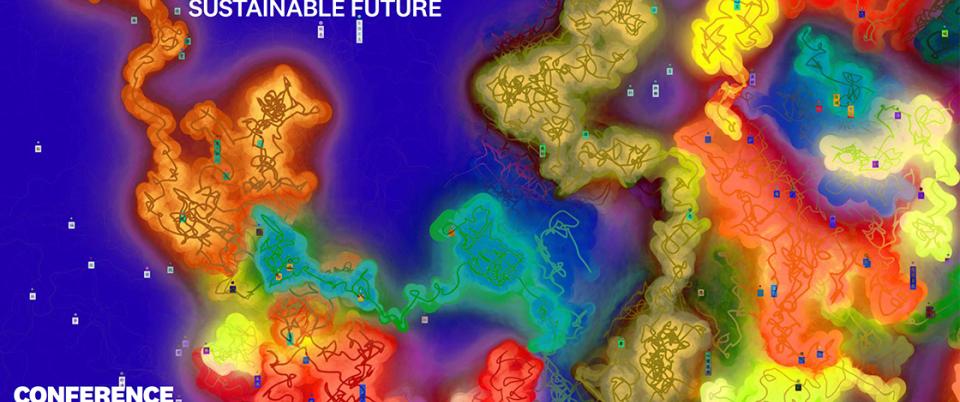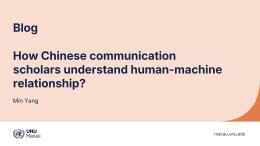The UNU Macau AI Conference 2024 was held in Macau SAR, China, on April 25, bringing together around 400 representatives from academia, policymakers, the private sector, international organizations, and civil society from around the globe. The conference, themed "AI for All: Bridging Divides, Building a Sustainable Future," aimed to foster a comprehensive dialogue on the role of AI in shaping a more equitable world.
The conference had four key objectives:
- Knowledge Sharing: Establish a platform for sharing insights on applied AI from diverse perspectives.
- Stakeholder Connection: Facilitate collaboration among varied groups through common AI-related interests.
- Co-Creation of Solutions: Develop data-driven, inclusive, and sustainable AI solutions that accelerate the achievement of the SDGs.
- Multi-Stakeholder Engagement: Support the creation of an inclusive AI community.
Over the course of one week, 26 sessions and 4 side events took place, promoting dialogue, discussion, and exchange across three main thematic pillars: AI to Accelerate SDGs, AI Governance for the Future, and AI and Capacity Building. Review the full programme.
The following conference proceedings report offers a comprehensive summary of the event. Additionally, a policy directions report has been produced, which can be downloaded from this link.
What Was Achieved?
- Fostering Collaboration: The conference, the first of its scale organized by UNU Macau, successfully connected a wide range of stakeholders across sectors, sparking collaboration on AI for the SDGs.
- Knowledge Sharing: With contributions from experts across diverse fields, the event served as a knowledge hub, advancing the 2030 Agenda and building the capacity of 400 participants on the application of AI for sustainable development.
- Co-Creation of Solutions: Through multiple dialogues, the conference nurtured collective intelligence to co-create AI-driven solutions for sustainable development, focusing on governance frameworks, regulation, and addressing associated challenges and risks.
- Building a Global Community: A multi-stakeholder community on AI was cultivated, leading to the launch of the UNU Global AI Network - a collaborative initiative spearheaded by UNU and its partners.
- Strengthening Partnerships: Digital cooperation was enhanced through formalized alliances, including a collaboration pledge between the UNIDO Global Alliance on AI for Industry and Manufacturing and the UNU Global AI Network, aimed at accelerating the SDGs.
- Informed Policy Development: The conference underscored the importance of applying foresight to scientific research, as reflected in the "Recommendations on the Use of Synthetic Data to Train AI Models" produced by the United Nations University.
- Investing in AI for the SDGs: Aligned with the Global Digital Compact: Zero Draft, the conference facilitated public and private investments in AI for the SDGs, with seed funding committed for the first project of the UNU Global AI Network.
Suggested citation: Paula Hidalgo-Sanchis, Wenting Meng and Ally S. Nyamawe. “UNU Macau AI Conference 2024, AI for All: Bridging Divides, Building a Sustainable Future. Conference Proceedings Report.” United Nations University, 2024.




